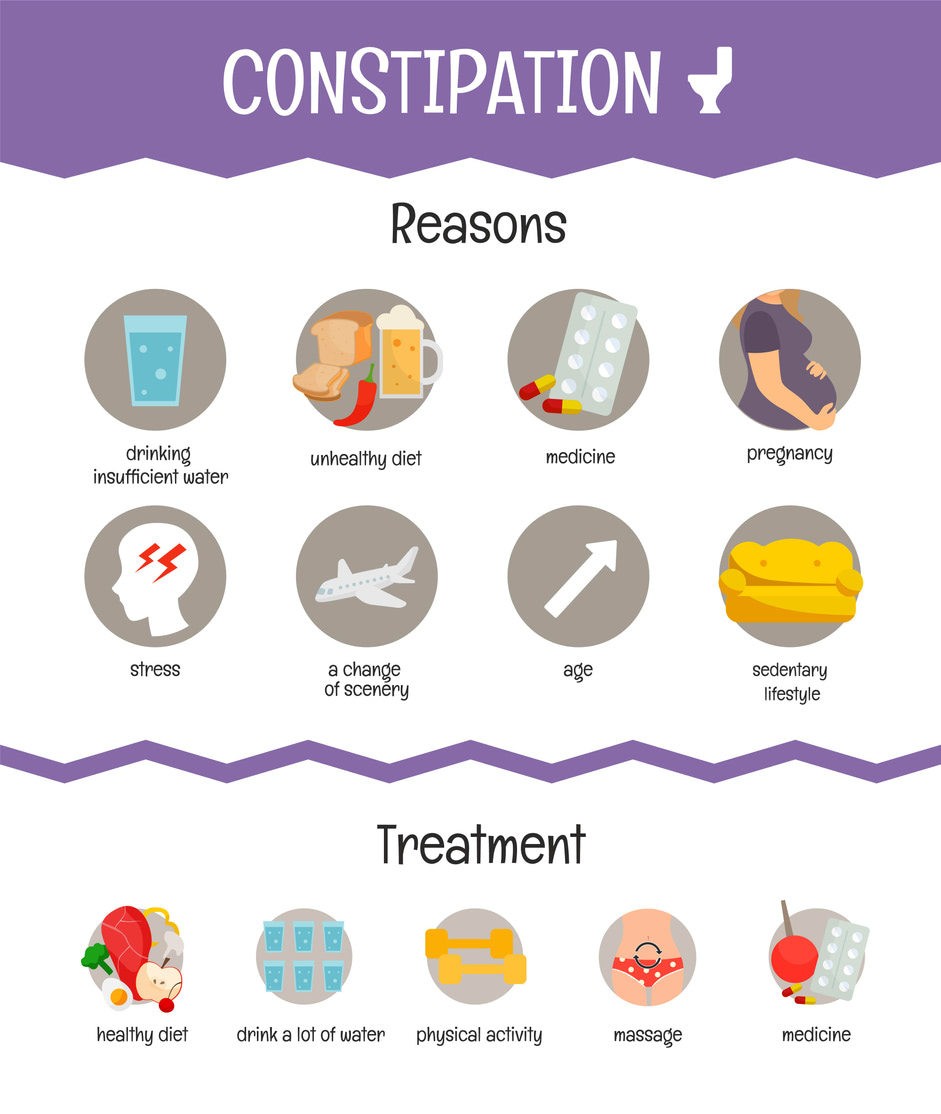Can Traveling Cause Constipation? Absolutely, and TRAVELS.EDU.VN understands this common travel woe. We offer solutions to keep your digestive system happy while you explore the world. Beat travel constipation with our expert advice and discover ways to maintain regularity on the go.
1. Understanding Constipation: A Comprehensive Overview
Constipation is generally defined as having fewer than three bowel movements a week. Stools become hard, dry, and difficult to pass, causing discomfort and potential pain. Before diving into how travel exacerbates this issue, let’s understand the common culprits behind general constipation.
1.1. Common Causes of General Constipation
Several factors can lead to constipation. Addressing these factors can significantly improve your digestive health, both at home and during your travels.
- Inadequate Fiber Intake: Fiber adds bulk to your stool, making it easier to pass.
- Dehydration: Water helps keep your stool soft.
- Sedentary Lifestyle: Physical activity stimulates bowel movements.
- Ignoring the Urge: Regularly delaying bowel movements can lead to constipation.
- Certain Medications: Some medications, like opioids and antacids, can slow down bowel movements.
- Medical Conditions: Conditions such as IBS, diabetes, and hypothyroidism can contribute to constipation.
 Reasons for Constipation
Reasons for Constipation
1.2. When to Seek Medical Advice
While occasional constipation is usually not a cause for concern, persistent or severe constipation may indicate an underlying medical condition. Consult your doctor if you experience:
- Severe abdominal pain
- Blood in your stool
- Unexplained weight loss
- Constipation lasting longer than three weeks
2. The Link Between Travel and Constipation: Why It Happens
So, can traveling cause constipation? The answer is a resounding yes. Travel throws your body off its routine, disrupting your digestive system and leading to constipation. This is often referred to as “traveler’s constipation”. Let’s delve into the specific reasons why travel can lead to digestive woes.
2.1. Disruption of Routine
Your body thrives on routine. When you travel, your regular schedule for meals, sleep, and bathroom breaks is often disrupted, impacting your bowel movements.
2.2. Dietary Changes
Trying new foods and cuisines is a highlight of travel, but it can also upset your digestive system. Changes in your diet, especially a decrease in fiber intake, can contribute to constipation.
2.3. Dehydration During Travel
Travel, especially air travel, can lead to dehydration. Airplane cabins have low humidity, which can cause you to lose fluids more quickly. Insufficient water intake hardens stools, making them difficult to pass.
2.4. Sedentary Travel
Long periods of sitting during flights, car rides, or train journeys can slow down your digestive system. Lack of physical activity reduces the natural stimulation of bowel movements.
2.5. Stress and Anxiety
The stress and anxiety associated with travel, such as navigating unfamiliar airports or dealing with delays, can affect your digestive system. Stress hormones can disrupt bowel function, leading to constipation.
2.6. Time Zone Changes
Traveling across time zones can disrupt your body’s natural clock, affecting your sleep patterns and bowel habits.
3. Identifying Constipation Symptoms While Traveling
Recognizing the symptoms of constipation early can help you take timely action to relieve discomfort. Here are common signs of constipation to watch out for while traveling.
3.1. Infrequent Bowel Movements
Having fewer than three bowel movements per week is a primary indicator of constipation.
3.2. Hard, Dry Stools
Passing stools that are hard, dry, and difficult to pass is a common symptom.
3.3. Straining During Bowel Movements
Experiencing pain or straining while trying to have a bowel movement is a sign of constipation.
3.4. Feeling of Incomplete Evacuation
Feeling like you haven’t completely emptied your bowels after a bowel movement can indicate constipation.
3.5. Abdominal Discomfort
Bloating, cramping, and general abdominal discomfort are common symptoms associated with constipation.
4. Prevention Strategies: Keeping Regular on the Road
Preventing constipation while traveling involves adopting proactive strategies to maintain your digestive health. Here are some effective tips to help you stay regular on the road.
4.1. Hydration is Key
Drink plenty of water throughout your travels. Carry a reusable water bottle and refill it regularly. Aim for at least eight glasses of water a day to keep your stools soft and easy to pass.
4.2. Fiber-Rich Diet
Choose fiber-rich foods whenever possible. Include fruits, vegetables, whole grains, and legumes in your meals. Pack healthy snacks like apples, bananas, or trail mix with nuts and seeds to ensure you get enough fiber on the go.
4.3. Regular Exercise
Incorporate physical activity into your travel plans. Take walks, go for a run, or do some stretching exercises. Even short bursts of activity can stimulate your digestive system.
4.4. Stick to a Routine
Try to maintain a regular schedule for meals and bathroom breaks, even when traveling. This can help regulate your bowel movements and prevent constipation.
4.5. Manage Stress Levels
Practice relaxation techniques to manage stress and anxiety. Deep breathing exercises, meditation, and yoga can help calm your digestive system and promote regular bowel movements.
4.6. Probiotics for Gut Health
Consider taking a probiotic supplement before and during your travels. Probiotics can help maintain a healthy balance of gut bacteria, promoting regular bowel movements and preventing constipation.
4.7. Limit Caffeine and Alcohol
Both caffeine and alcohol can have a dehydrating effect on the body, exacerbating constipation. Limit your intake of these beverages while traveling and opt for water or herbal teas instead.
5. Effective Relief Methods: What to Do When Constipation Strikes
Despite your best efforts, constipation can still occur while traveling. Here are effective relief methods to help you get your digestive system back on track.
5.1. Over-the-Counter Laxatives
Over-the-counter laxatives can provide relief from constipation. Osmotic laxatives, such as Milk of Magnesia or Miralax, draw water into the colon to soften stools. Stimulant laxatives, such as Ex-Lax or Dulcolax, stimulate intestinal contractions to promote bowel movements. Use laxatives as directed and consult your doctor if you have any concerns.
5.2. Stool Softeners
Stool softeners, such as Colace, help to soften stools by increasing the amount of water they absorb. These are gentle and can be used regularly without causing dependency.
5.3. Natural Remedies
Several natural remedies can help relieve constipation. Prunes, prune juice, and flaxseeds are natural laxatives that can promote bowel movements.
5.4. Abdominal Massage
Gently massaging your abdomen can help stimulate bowel movements. Use circular motions and apply light pressure to promote the movement of stool through your intestines.
5.5. Squatty Potty
Using a Squatty Potty or similar device can help align your colon for easier bowel movements. Elevating your feet while sitting on the toilet can mimic a natural squatting position, facilitating easier passage of stool.
6. Specific Travel Scenarios and Constipation Solutions
Different modes of travel and destinations can present unique challenges when it comes to constipation. Here’s how to address constipation in specific travel scenarios.
6.1. Air Travel
- Stay Hydrated: Drink plenty of water during your flight to combat dehydration.
- Move Around: Get up and walk around the cabin every few hours to stimulate your digestive system.
- Avoid Processed Foods: Pack healthy snacks and avoid processed foods offered on the plane.
6.2. Road Trips
- Plan Bathroom Breaks: Plan regular bathroom breaks along your route to avoid holding it in.
- Stay Active: Take breaks to stretch your legs and do some light exercise.
- Healthy Food Choices: Pack healthy snacks and meals to avoid relying on fast food.
6.3. International Travel
- Adjust to Time Zones: Gradually adjust to new time zones to minimize disruption to your body’s routine.
- Be Mindful of Food Safety: Choose reputable restaurants and avoid questionable food sources to prevent digestive upset.
- Consult Your Doctor: Talk to your doctor about any necessary vaccinations or medications before your trip.
7. How TRAVELS.EDU.VN Can Help You Stay Regular on Your Next Trip
At TRAVELS.EDU.VN, we understand the importance of a healthy and comfortable travel experience. We offer personalized travel planning services that take your digestive health into consideration. Here’s how we can help you avoid constipation on your next trip.
7.1. Personalized Travel Planning
Our travel experts will create a customized itinerary that includes healthy food options, regular activity breaks, and strategies for managing stress. We’ll help you maintain your routine and prevent constipation while you explore the world.
7.2. Recommended Destinations
We recommend destinations known for their healthy food options and opportunities for physical activity. Whether you’re looking for a yoga retreat in Bali or a hiking adventure in the Swiss Alps, we’ll help you find the perfect trip to support your digestive health.
7.3. Healthy Travel Tips
Our website features a wealth of resources on healthy travel, including articles on preventing constipation, staying hydrated, and choosing healthy food options. We provide practical tips and advice to help you stay regular on the road.
7.4. Tour Packages Designed for Wellness
We offer specialized tour packages designed with your well-being in mind. These packages include accommodations with healthy food options, guided activities, and wellness workshops to help you maintain your digestive health while traveling.
8. Expert Insights: Interview with a Gastroenterologist
We spoke with Dr. Jane Smith, a leading gastroenterologist, about the link between travel and constipation. Here’s what she had to say:
“Travel constipation is a common issue that can significantly impact your travel experience. The key to preventing constipation is to maintain your regular routine as much as possible, stay hydrated, eat a fiber-rich diet, and manage stress levels. If you do experience constipation, over-the-counter remedies like stool softeners and osmotic laxatives can provide relief. If your constipation persists or is accompanied by other symptoms, consult your doctor to rule out any underlying medical conditions.”
9. Testimonials: Real-Life Experiences with Travel Constipation
Here are some testimonials from travelers who have experienced constipation and found effective relief methods.
- Sarah, 32: “I used to dread traveling because I always got constipated. Since I started drinking more water and packing fiber-rich snacks, I’ve had much better luck. Now I can enjoy my trips without worrying about digestive issues.”
- John, 45: “I found that taking a probiotic supplement before and during my travels really helped keep me regular. It’s made a huge difference in my overall travel experience.”
- Emily, 28: “I always make sure to stay active on my trips, even if it’s just going for a walk every day. It helps keep my digestive system moving and prevents constipation.”
10. Take Action: Book Your Next Trip with TRAVELS.EDU.VN
Don’t let constipation ruin your next travel experience. Let TRAVELS.EDU.VN help you plan a trip that supports your digestive health and well-being. Contact us today to learn more about our personalized travel planning services and healthy travel tips.
10.1. Contact Us
Ready to plan your next trip with TRAVELS.EDU.VN? Contact us today!
- Address: 123 Main St, Napa, CA 94559, United States
- WhatsApp: +1 (707) 257-5400
- Website: TRAVELS.EDU.VN
10.2. Special Offer
Book your Napa Valley tour with TRAVELS.EDU.VN this month and receive a complimentary digestive health travel kit. This kit includes a reusable water bottle, fiber-rich snacks, and a probiotic supplement to help you stay regular on the road.
Experience the beauty of Napa Valley without the discomfort of constipation. Let us help you plan a trip that is both enjoyable and healthy.
FAQ: Addressing Your Questions About Travel Constipation
Q1: Can changing time zones cause constipation?
Yes, disrupting your body’s natural clock can affect bowel habits.
Q2: What foods should I avoid to prevent constipation while traveling?
Limit processed foods, caffeine, and alcohol.
Q3: How much water should I drink on a long flight?
Aim for at least eight ounces every hour.
Q4: Are probiotics helpful for travel constipation?
Yes, they maintain gut health and regularity.
Q5: What is the best over-the-counter remedy for travel constipation?
Osmotic laxatives are generally a good first choice.
Q6: Can stress during travel cause constipation?
Yes, stress hormones can disrupt bowel function.
Q7: How soon can I expect relief from constipation remedies?
Osmotic laxatives may take 12-24 hours; stimulant laxatives, 4-6 hours.
Q8: Is it safe to use laxatives regularly while traveling?
No, overuse can be harmful. Consult a doctor for frequent issues.
Q9: What exercises can help relieve constipation on a plane?
Simple stretches and walking in the aisle.
Q10: How can travels.edu.vn help me avoid constipation on my trip?
We offer personalized planning with healthy options and activity breaks.

